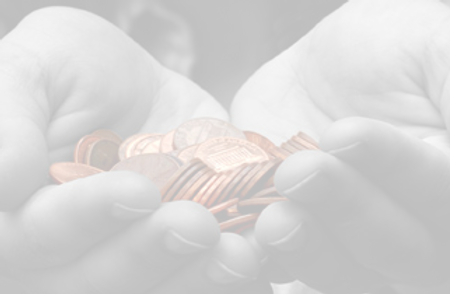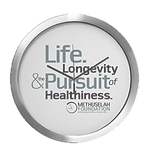PETER THIEL




Born to Klaus and Susanne Thiel, Peter Andreas Thiel and his family moved to the United States from Germany. He was raised in Foster City, California, where he became a US-rated Chess Master and one of the best players in the country.
Thiel studied at Stanford, where he received a B.A. in Philosophy and a J.D. from Stanford Law School in 1989 and 1992, respectively. In 1987, he, along with Norman Brook founded The Stanford Review, which became the university’s main libertarian newspaper, even today. Other contributors include Keith Rabois, David O. Sacks, and Reid Hoffman, who all became part of the Paypal mafia.
ABOUT
Peter Thiel is a billionaire investor and venture capitalist, as well as a successful entrepreneur and lawyer. Read more on his career here.
Nonprofits
To carry out the bulk of his philanthropy, Theil started his own nonprofit organization called Thiel Foundation. He concentrates on funding potential breakthrough technologies and radical new ideas for government and foreign affairs.
Thiel is heavily concerned with the rapid breakthroughs with artificial intelligence. As a result, he provided hundreds of thousands of dollars to Machine Intelligence Research Institute, an organization committed to ensure the creation of smarter-than-human artificial intelligence remains a positive impact, behaving the way we intended for it to be even without human supervision. MIRI has been present in the Breakthrough Philanthropy conference and Fast Forward conference in 2010 and 2011, respectively. Recentlly, Thiel also backed OpenAI, another nonprofit company designed to create safe, tractable artificial intelligence.
Thiel believes that the biggest achievement yet to be accomplished is the anti-aging front. Consequently, he has donated $3.5 million to the Methuselah Mouse Prize Foundation. The Thiel Foundation also provided funds to the SENS Research Foundation, headed by Dr. Grey with a commitment to reverse biological aging processes. Additionally, Thiel has registered to be cryonically suspended, the process of freezing the body so that all biological processes stop, waiting to be medically revived by future technology.
After the Seasteading Institute was established in 2008, Thiel initially pledged $500,000, looking forward to having "permanent, autonomous ocean communities to enable experimentation and innovation with diverse social, political, and legal systems." This figure later rose to a combined $1.25 million, and the Seasteading Institute also became a participant in the Breakthrough Philanthropy and Fast Forward conferences.
To promote entrepreneurship to aspiring leaders, Thiel founded the Thiel Fellowship, where teenagers are paid $100,000 over two years to not go to college but rather start their own breakthrough company instead. The fellowship has grown immensely popular over the years, with over 100 members and alumni of a total of 2800 applicants. The Thiel Felllowship has been featured in various sites, including Business Insider and TechCrunch.
To go along with his philosophy of funding radical technologies, Thiel founded Breakout Labs in 2011, which was designed to fund breakthrough scientific research that was too radical for mainstream funding, yet too long-term and speculative for other prospective investors.
WORK
EARLY LIFE

PHILANTHROPY
OTHER
Politics
Religion
Thiel describes himself as a conservative libertarian and is a proud supporter of gay-rights, and has been involved in an activist in a number of gay-rights programs, as he is gay himself. Although a libertarian, Thiel has donated and endorsed a number of Republican campaigns, such as Ron Paul and John McCain for the 2008 presidential election and Meg Whitman for governor of California.
"Luck is just an excuse for not working hard."
-Peter Thiel
A strong advocate for hard workers, Thiel does not believe that success is a result of luck, unlike top business magnates like Bill Gates and Waren Buffet. Rather, success is the result of years of diligent work and dedicated perseverance.
However, a belief Thiel shares with immensely wealthy and successful entrepreneurs like Elon Musk is that one needs to focus on the mission. A figure rooted in Silicon Valley, Thiel does not abide by notable characteristics labeled on it.
"I’m personally very skeptical of the ping-pong tables and all these corporate perks. I think the company culture is always best organized around the mission of what the company does."
-Peter Thiel
The mindset Thiel carries about work is on the opposite spectrum of what other entrepreneurs believe as well. While others rush to get things done, working as if it is the last day they live, Thiel takes a different approach. Thiel thinks one should live each day as if it goes on forever. That way, he rationalizes, one can start working on projects that will take a long time to complete and treat others, like employees for example, fairly because he or she is going to see them again.
"I believe Christianity is true. I don’t sort of feel a compelling need to convince other people of that."
-Peter Thiel

Childhood

College

Career

Beliefs

Theory

A.I.

Anti-Aging

Seasteading

Fellowship

Research

Thiel taught CS 183: Startup, his first teaching position at Stanford University. He later wrote Zero to One with his former student, Blake Masters, which instantly became a bestseller.
Zero to One outlines the current age of innovation and the premises to make further scientific and technological developments. It has earned numerous awards since its publication in September 2014, and currently ranked 1 for Economic Policy and Development, 1 for Economic Policy, and 8 for Entrepreneurship on Amazon.com.
"What important truths do very few people agree with you on?"
-Peter Thiel in Zero to One
Book
Interestingly enough, Thiel inherited his Christian beliefs from his mother and father, albeit he's gay. Yet, due to his liberalism, he believes his beliefs are "somewhat heterdox."
